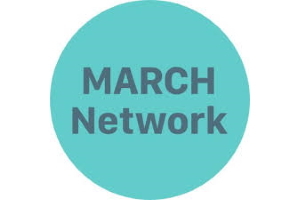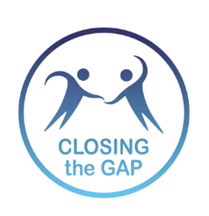Inclusive research that tackles inequalities

Inclusive research that tackles inequalities is an essential component of good quality-mental health research. Mental health research has an important role in tackling inequalities, especially when inequalities can have such a profound impact on someone’s mental health.
Historically, this hasn’t been something the mental health sector has been good at. Mental health services and mental health research do not address the needs of marginalised and racialised communities well.
The UKRI mental health networks have spent the last four years embedding inclusivity in their work. A key part of this is listening to and learning from people with relevant lived experience.
There are numerous examples across the UKRI networks of inclusive, antiracist research that tackles inequalities. We’ve explored one example per network here, but there’s a longer list below if you’d like to look into the networks’ work in this area in more detail.
You can also catch up on the webinar on this topic via the Mental Elf YouTube channel.
 TRIUMPH
TRIUMPH
STEP Study: Schools Training to Enhance support for LGBTQ+ young People
The TRIUMPH-funded STEP study highlights the importance of feelings of safety in schools to support young people’s mental health. The researchers worked alongside young people to identify ways to improve training in schools to support LGBTQ+ students’ mental health, as well as explore barriers and ways to improve training uptake.
 eNurture
eNurture
In the hands of users with Learning Disabilities: Co-Designing Tangible Users Interfaces for Mental Wellbeing
Developing tools to improve mental well-being for people with learning difficulties can be challenging, however, it is especially important as people with learning difficulties often experience higher rates of mental health problems compared to the general population.
Researchers behind this study created workshops to co-design tangible digital tools for people with learning difficulties to monitor and improve their mental health. The tools the researchers developed have the potential to collect real-world data for machine-learning classifiers.
 SMaRteN
SMaRteN
Pilot study of a Student-led Peer Support Wellbeing Programme Piloting the use of culturally astute interventions to improve Black student mental health
Researchers behind this project are developing peer-to-peer support and mentoring intervention for students of African and Caribbean descent. This intervention was specifically designed and delivered by students and practitioners of African and Caribbean heritage. It will be evidence-based and culturally sound peer-to-peer support to heal trauma from historical and current psychological oppression.
Topics included: coping skills while at university, stress management, work-life balance, positive identity identification, sense of belonging and working through racial trauma
 Violence and Abuse Mental Health Research Network
Violence and Abuse Mental Health Research Network
Understanding the interconnection between violence-abuse and mental ill-health in Black and Minoritised Women’s Journeys to Healing-Recovery
This research aims to explore black and minoritised (B&M) women’s lived experience of violence-abuse and mental ill-health and how they make sense of this linkage, their journeys of help-seeking and responses received, and their views about what supports or compromises their healing. This will inform the policy work of Imkaan (a UK-based women’s organisation dedicated to addressing violence against Black and Minoritised women and girls), feed into wider conversations on mental health and domestic violence, and strengthen practice responses.
 Loneliness and Social Isolation in Mental Health Research Network (LSIMHRN)
Loneliness and Social Isolation in Mental Health Research Network (LSIMHRN)
Investigating whether loneliness is a mechanism that leads to depressive symptoms in older adults who are lesbian, gay, bisexual or have chronic physical health problems
This LSIMHRN-funded research was in two parts: one study looked at the role of loneliness in the association between sexual orientation and future symptoms of depression. The second study explored the role of loneliness in the association between chronic physical illness and future symptoms of depression.
The researchers used large samples of nearly 7,000 participants for study 1 and just short of 5,000 participants for study 2 over multiple time points to better understand the connection between loneliness and depression in lesbian, gay and bisexual people and physical health problems.
 MARCH
MARCH
Assessing the impact of artistic and cultural activities on the health and well-being of forcibly displaced people using participatory action research
The study explored the effects of cultural and creative activities on the psychosocial well-being of refugees and asylum seekers. By focusing on the relationship between arts, well-being and forced displacement, the study was instrumental in actively trying to change the narrative surrounding refugees and asylum seekers, often depicted in negative terms in the public sphere.
Closing The Gap
The digital divide: amplifying health inequalities for people with severe mental illness in the time of COVID-19
The Digital Divide study explores the inequalities faced by people who do not have the means or lack confidence in skills to access digital spaces. The pandemic meant online interactions became even more important. But there are groups of people who were left behind – including those with severe mental illness. The challenges of the digital divide are of paramount importance when accessing healthcare. The authors urge digital healthcare providers to design services with accessibility and usability in mind for people with severe mental illness. You can read their paper which explores the extent of the divide here.
 Emerging Minds
Emerging Minds
Improving wellbeing and mental health relating to racism in 10-11-year-olds: a Bristol case study.
This Emerging-Minds-funded study looked at how 10-11-year-old pupils experienced racism and how it affected their mental health, including how to better support young people experiencing racism. The researchers worked alongside teachers to develop a new tool to use in the Initial Teacher Education Programme at UWE so they could better support the mental health and well-being of pupils.
This project was funded after Emerging Mind’s priority setting workshop aimed to support children and young people affected by racism.
FIND OUT MORE
If you want to find out more about the mental health research networks, check out our other pages on:
Catch up on the webinar on this topic here:
